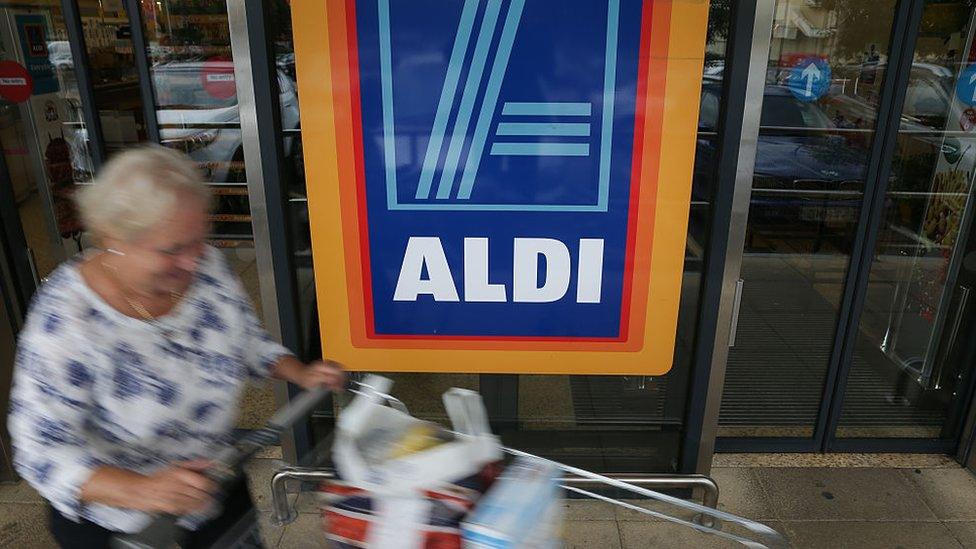Aldi and Lidl sales soar as prices rise
- Published

Sales at Aldi and Lidl have grown at their fastest rate in more than two years as the discounters opened new stores and passed on price rises to consumers, new research shows.
The two retailers' combined sales rose almost 20% in the 12 weeks to 21 May compared with the same period last year, Kantar Worldpanel said.
Meanwhile, 1.1 million more households shopped at either store.
Kantar said all supermarkets had seen "some level of rising prices".
Grocery inflation hit 2.9% during the period.
According to the research, grocery sales climbed 3.8% in the three months - the best performance since September 2013.
All 10 leading grocers also recorded growth, with average sales up 1.6% across the big four supermarkets: Tesco, Sainsbury's, Asda and Morrisons.
However, Aldi and Lidl saw by far the biggest sales increases, climbing 19.8% and 18.3% respectively.
Own-label boost
Chris Hayward, a consumer specialist at Kantar, said sales at Lidl and Aldi had been boosted by inflation.
He added: "But their rapid growth is also the effect of more of the UK population shopping in their stores more often, as they both continue a programme of store openings."
Both retailers had also developed "very successful" own-label lines, according to Mr Hayward: "These played well to customers' desire for value, while also encouraging them to trade up to more expensive products."
Kantar said own-label products were a major source of growth for all retailers, outpacing total sales of branded goods.
Shoppers also bought more healthy foods after the excesses of Easter, when the nation consumed some £325m worth of Easter eggs.
By volume, sales of mineral water were up 7.4%, eggs by 5.1% and fresh produce by 2.1%, while sugar sales fell 5.6%.
The research firm said that food price inflation, caused by the recent fall in the pound, had already begun to hit shoppers' hip pockets, with the average household spending an additional £27 on shopping in the period.
"That may not seem like much, but if inflation continues at its current rate over the course of a year that would mean an extra £119 spent on groceries per household," said Mr Hayward.
- Published3 May 2017
- Published7 February 2017